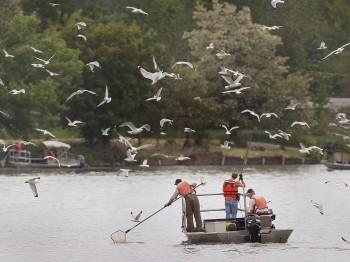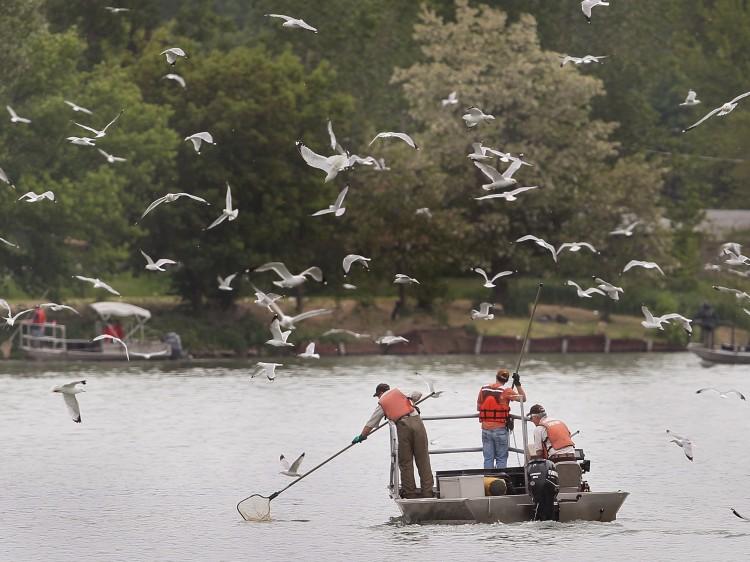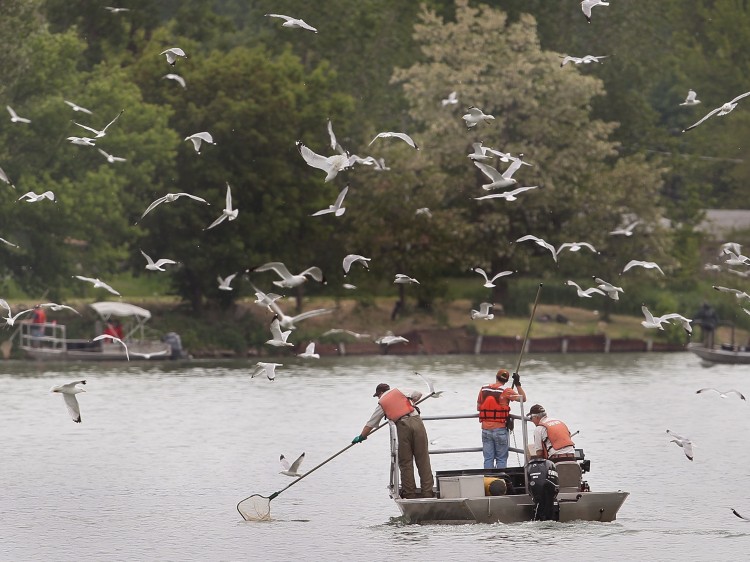CHICAGO—Researchers have warned for years that the invasive Asian carp will cause great harm if it enters the Great Lakes ecosystem. An electric barrier was installed in Chicago waterways in an effort to block the spread of this enormous and prolific fish, but scientists say it’s not enough.
In the recently released, peer-reviewed “Aquatic Invasive Species Risks to the Great Lakes and Mississippi River Basins,” U.S. and Canadian researchers from the Great Lakes and Mississippi basins stress that the only way to effectively and permanently protect the Great Lakes from the Asian carp and other invasive species is by removing the man-made link connecting the Mississippi River to the Great Lakes.
Opponents to this separation plan have argued that the electric barrier is already an effective measure in blocking the Asian carp, but researchers disagree. “After more than a year of environmental DNA testing, electrofishing, netting, and rotenone (fish poison) applications, no consensus has emerged among federal and state agencies responsible for control measures as to whether or not the existing electrical barriers have been effective in blocking Asian carp under a variety of river conditions,” says the report.
Scientists claim that the greatest deficiency of electrical barriers and similar devices is their inability to block both upstream and downstream movement of all kinds of invasive aquatics, including fish, plants, disease organisms, and parasites.
Researchers say there is a systematic campaign by special interests to quote experts out of context, and misrepresent scientific results in regard to the Asian carp issue. According to concerned scientists, this disinformation campaign has led to a systematic failure to correct critical deficiencies in the effort to monitor the fast-approaching Asian carp invasion.
According to the recent study, “The effect has been to paralyze the public agencies responsible (such as the U.S. Army Corps of Engineers) from even evaluating permanent separation,” while the vast majority of available resources are used to pursue less reliable alternatives.
The new report aims to correct these misconceptions, and makes the case for a separation of the two watersheds in order to truly protect the Great Lakes.
“Extraordinary evidence demands extraordinary solutions, and the evidence is piling up in favor of separation,” says Joel Brammeier, president and CEO of the Alliance for the Great Lakes in a statement. “Declaring independence between the Great Lakes and Mississippi River is the only option.”
While opponents have argued that a permanent separation of the two watersheds would result in the loss of hundreds of jobs and billions in revenue, scientists counter that keeping the waterways connected could have dire consequences. The report states that 6 of the 70 known harmful invasives in the Great Lakes have already fundamentally altered the food webs in many of their areas and have caused more than $1.6 billion in damages—harming municipal water intake systems, as well as commercial and recreational fisheries.
The report adds that if the Asian carp spread throughout the Great Lakes it would threaten existing fish populations—including fish prized by commercial and recreational fishermen—by competing for the same food sources at the bottom of the food chain.
Science Supports Great Lakes Separation to Stop Asian Carp
An electric barrier was installed in Chicago waterways in an effort to block the spread of Asian carp, but scientists say it’s not enough.


By Conan Milner
7/6/2011
Updated: 10/1/2015






Friends Read Free